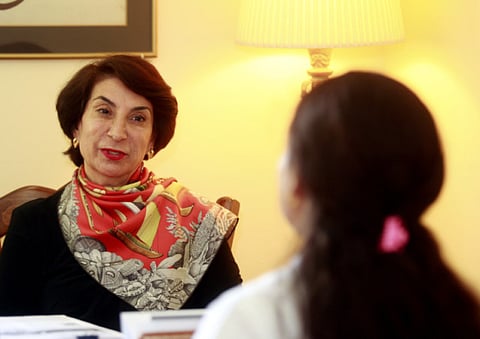Domestic violence on the rise in UAE
Verbal and emotional abuse more rampant and difficult to pin down compared to physical violence

Dubai: Domestic violence cases are on the rise, a Dubai-based psychologist said.
Dr Rory McCarthy, Clinic Psychologist with the private Counseling Development Clinic, told XPRESS at least three such cases come to her every day, the violence ranging from physical and sexual to emotional, verbal, financial and even spiritual. “The cases cut across nationalities, educational and financial backgrounds with verbal and emotional abuse more rampant and difficult to identify than the physical,” she said, while warning married couples against ignoring subtle signs of domestic violence.
STATISTICS
The Dubai Foundation for Women and Children also revealed a 36 per cent increase in the number people seeking its help for domestic violence. Last year, 140 women sought help from the foundation.
An Asian woman who lodged a police complaint after her high-profile western expat husband broke her jaw; a drunken European who nearly strangled his wife; two Arab and North American men pushing their wives into inappropriate sexual acts; an Asian man using his wife’s salary to run the house and withholding information about his own income; an Arab man not allowing his wife to follow any religion – these are some of the cases of violence that Dr McCarthy said she is dealing with.
But while physical abuse is obvious and can be easily reported, she said the other kinds of violence are manipulative and covert. “Verbal abuse is especially hurtful, insidious and manipulative. Usually, the partner does not even realise she is being controlled, but at some point may recognise that she is living her life differently or less happily. A woman who is clueless about her husband’s bank or property transactions may be brainwashed into believing they are beyond her comprehension.”
Dr McCarthy said there are many signs of an abuser (see box) which vulnerable partners must look out for. “We give out forms asking partners to tick a series of points if they are applicable. They include heads like withholding, countering, discounting information, verbal abuse diagnosed as jokes, blocking, diverting, judging, undermining, trivialising, name calling, ordering, forgetting, denying, threatening and so on ...”
“In Europe, 85 per cent of marriages plagued by domestic violence end in five to seven years. But here we do not have any such statistics. Moreover, many partners stay on in an abusive relationship because of financial dependence, fear of social stigma or implications for the children.
“But if they don’t watch out, they can become physically and mentally sick, get into substance or alcohol abuse, commit adultery or in some cases take cover in spiritual and charitable work. Bringing up children in such an unhealthy environment is not good either.”
“The key is to recognise the signs early on and speak up. Seek help if necessary.
“Usually, the abusing partner can be brought back on track if the problem is diagnosed on time,” she said.
How to Spot an Abuser
• Poor impulse control
• Low self-esteem
• Selfishness and narcissism
• Demanding
• Poor social, sexual skills
• Alcohol, drug abuse
• History of being abusive, mental illness
• Dependent personality (financially or emotionally)
• Needs to feel powerful and in control
• Aggressive
• Preoccupied with sex
Sign up for the Daily Briefing
Get the latest news and updates straight to your inbox



